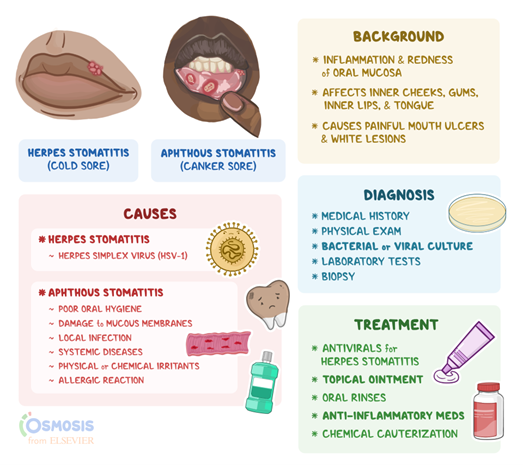A nurse is providing dietary teaching to a client newly diagnosed with celiac disease. Which of the following information should the nurse include in the teaching?
Dietary restrictions will eventually allow the intake of gluten to resume.
This condition may cause secondary lactose intolerance.
Nutritional therapy for this condition includes limiting proteins and calories.
A normal diet may resume after a period of remission.
The Correct Answer is B
Choice A reason: Dietary restrictions will not eventually allow the intake of gluten to resume. Gluten is a protein found in wheat, barley, rye, and some oats. It causes damage to the small intestine in people with celiac disease. The only treatment for celiac disease is a lifelong gluten-free diet.
Choice B reason: This condition may cause secondary lactose intolerance. Lactose is a sugar found in milk and dairy products. It is broken down by an enzyme called lactase in the small intestine. People with celiac disease may have reduced levels of lactase due to the damage to the small intestine caused by gluten. This can lead to lactose intolerance, which is the inability to digest lactose properly. Symptoms of lactose intolerance include bloating, gas, diarrhea, and abdominal pain after consuming dairy products.
Choice C reason: Nutritional therapy for this condition does not include limiting proteins and calories. People with celiac disease need adequate amounts of proteins and calories to maintain their health and prevent malnutrition. They also need to ensure that they get enough vitamins, minerals, and fiber from gluten-free sources.
Choice D reason: A normal diet cannot resume after a period of remission. Celiac disease is a chronic autoimmune disorder that does not have a cure. Even if the symptoms improve or disappear, the damage to the small intestine can still occur if gluten is consumed. Therefore, a strict gluten-free diet must be followed for life.
Nursing Test Bank
Naxlex Comprehensive Predictor Exams
Related Questions
Correct Answer is C
Explanation
Choice A reason: Potassium 3.5 mEq/L is not a finding that indicates fluid volume deficit because it is within the normal range, which is 3.5 to 5.0 mEq/L. Potassium is an electrolyte that regulates nerve and muscle function, acid-base balance, and fluid balance. Potassium level can be affected by various factors, such as diet, medication, kidney function, and dehydration.
Choice B reason: Sodium 145 mEq/L is not a finding that indicates fluid volume deficit because it is within the normal range, which is 136 to 145 mEq/L. Sodium is an electrolyte that regulates blood pressure, blood volume, and fluid balance. Sodium level can be affected by various factors, such as diet, medication, kidney function, and fluid loss.
Choice C reason: Hematocrit 53% is a finding that indicates fluid volume deficit because it is above the normal range, which is 38 to 50% for men and 34 to 46% for women. Hematocrit is the percentage of red blood cells in the total blood volume. Hematocrit level can increase due to dehydration, which causes hemoconcentration or increased blood viscosity.
Choice D reason: HbA1c 5% is not a finding that indicates fluid volume deficit because it is within the normal range, which is less than 5.7%. HbA1c is the percentage of hemoglobin that is attached to glucose. HbA1c level reflects the average blood glucose level over the past two to three months. HbA1c level can be affected by various factors, such as diabetes, anemia, and medication.
Correct Answer is A
Explanation
Choice A reason: Offering the client frozen banana as a snack is an appropriate intervention for the nurse to take because it can help soothe and cool the inflamed mucous membranes in the mouth and throat, which are caused by stomatitis. Stomatitis is an inflammation of the oral cavity that can result from radiation therapy or chemotherapy. Frozen banana also provides potassium, vitamin C, and fiber for the client.
Choice B reason: Serving the client hot meals is not an appropriate intervention for the nurse to take because it can worsen nausea and vomiting. Hot meals are aromatic, spicy, and greasy, which are characteristics of emetic foods. Hot meals can also irritate the stomach lining and trigger the gag reflex.
Choice C reason: Avoiding serving sauces or gravies is not an appropriate intervention for the nurse to take because it can cause dehydration and malnutrition. Sauces and gravies are liquid, mild, and moist, which are characteristics of antiemetic foods. Sauces and gravies can also enhance the flavor and texture of bland foods and provide calories and nutrients for the client.
Choice D reason: Discouraging the use of a straw is not an appropriate intervention for the nurse to take because it can prevent adequate fluid intake and hydration. Using a straw can help the client sip small amounts of clear liquids, such as water, ginger ale, or broth, which are antiemetic fluids. Using a straw can also reduce the exposure to odors and tastes that may cause nausea.

Whether you are a student looking to ace your exams or a practicing nurse seeking to enhance your expertise , our nursing education contents will empower you with the confidence and competence to make a difference in the lives of patients and become a respected leader in the healthcare field.
Visit Naxlex, invest in your future and unlock endless possibilities with our unparalleled nursing education contents today
Report Wrong Answer on the Current Question
Do you disagree with the answer? If yes, what is your expected answer? Explain.
Kindly be descriptive with the issue you are facing.
